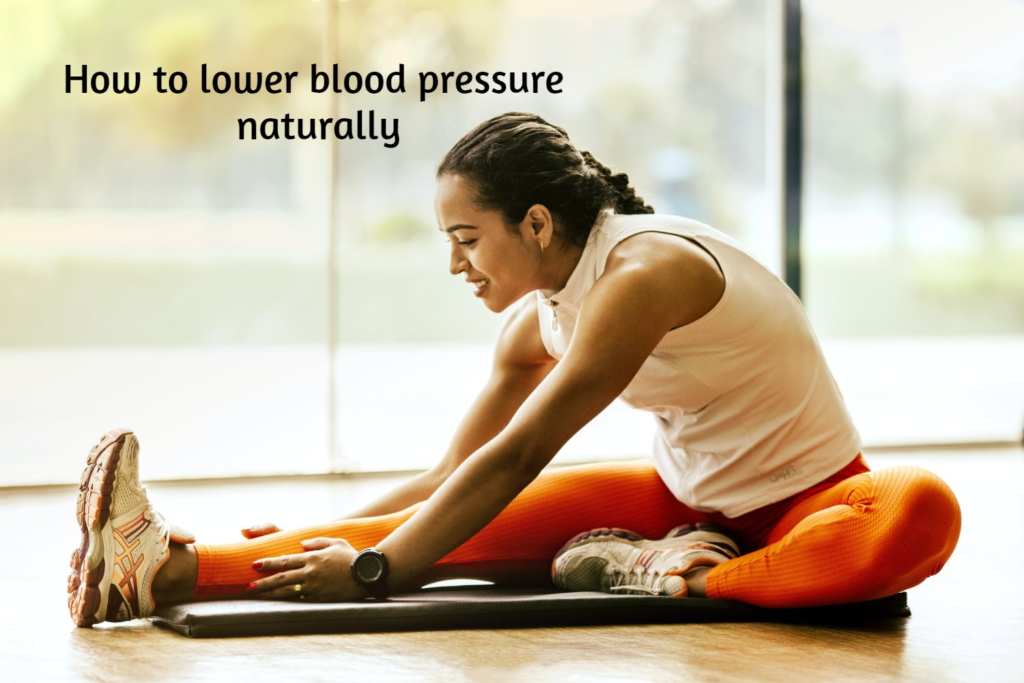High blood pressure, or hypertension, is a common health issue that affects millions of people worldwide. Managing blood pressure is crucial for preventing serious health complications such as heart disease, stroke, and kidney problems. Fortunately, there are several natural ways to lower blood pressure that can complement or even replace medication. Here’s a comprehensive guide on how to lower blood pressure naturally.
1. Adopt a Healthy Diet
Eat More Fruits and Vegetables: Incorporate plenty of fruits and vegetables into your diet. Foods rich in potassium, such as bananas, oranges, and spinach, help balance sodium levels and reduce blood pressure.
Reduce Sodium Intake: Limit your salt intake by avoiding processed foods and using herbs and spices to flavor your meals instead. The American Heart Association recommends consuming less than 2,300 milligrams of sodium per day.
Choose Whole Grains: Whole grains like brown rice, quinoa, and whole wheat bread provide essential nutrients and help regulate blood pressure.
Include Healthy Fats: Omega-3 fatty acids found in fish, flaxseeds, and walnuts have been shown to lower blood pressure. Replace saturated fats with healthy fats from olive oil, avocados, and nuts.
Vegetarian Meal Plan For Weight Loss
2. Maintain a Healthy Weight
Being overweight or obese increases the risk of hypertension. Losing even a small amount of weight can significantly lower blood pressure. Aim for a balanced diet and regular exercise to achieve and maintain a healthy weight.
3. Exercise Regularly
Regular physical activity strengthens the heart and improves blood flow, which helps lower blood pressure. Aim for at least 150 minutes of moderate-intensity exercise, such as brisk walking or cycling, per week. Incorporate strength training exercises at least two days a week for additional benefits.
4. Reduce Stress
Chronic stress can contribute to high blood pressure. Implement stress-reducing techniques such as:
Mindfulness Meditation: Practicing mindfulness meditation can help calm the mind and reduce stress levels.
Deep Breathing Exercises: Deep breathing exercises, such as diaphragmatic breathing, can promote relaxation and lower blood pressure.
Yoga and Tai Chi: These mind-body practices combine physical movement, breathing, and meditation to reduce stress and improve overall well-being.
5. Limit Alcohol and Caffeine
Excessive alcohol and caffeine consumption can raise blood pressure. If you drink alcohol, do so in moderation—no more than one drink per day for women and two drinks per day for men. Limit caffeine intake by reducing coffee, tea, and energy drink consumption.
6. Quit Smoking
Smoking damages blood vessels and raises blood pressure. Quitting smoking improves heart health and lowers the risk of hypertension and other cardiovascular diseases. Seek support from healthcare providers, smoking cessation programs, or support groups to help quit smoking successfully.
7. Get Enough Sleep
Poor sleep quality and insufficient sleep can negatively impact blood pressure. Aim for 7-8 hours of quality sleep per night. Establish a regular sleep schedule, create a restful environment, and avoid screens before bedtime to improve sleep quality.
8. Monitor Your Blood Pressure
Regular monitoring of blood pressure helps track progress and detect any changes early. Home blood pressure monitors are widely available and easy to use. Keep a log of your readings and share them with your healthcare provider for personalized advice.
9. Try Natural Supplements
Certain supplements have been shown to help lower blood pressure. Consult with a healthcare provider before taking any supplements, especially if you are on medication. Some beneficial supplements include:
Garlic Extract: Known for its blood pressure-lowering effects, garlic extract can be a useful supplement.
Magnesium: Magnesium helps relax blood vessels and may reduce blood pressure.
Coenzyme Q10 (CoQ10): This antioxidant supports heart health and can help lower blood pressure.
Conclusion
Lowering blood pressure naturally involves adopting a healthy lifestyle and making consistent changes to diet, exercise, and stress management. By incorporating these strategies, you can effectively manage your blood pressure and improve your overall health. Always consult with a healthcare provider before making significant changes to your health routine or starting new supplements. Remember, small steps can lead to big changes in maintaining healthy blood pressure levels.
